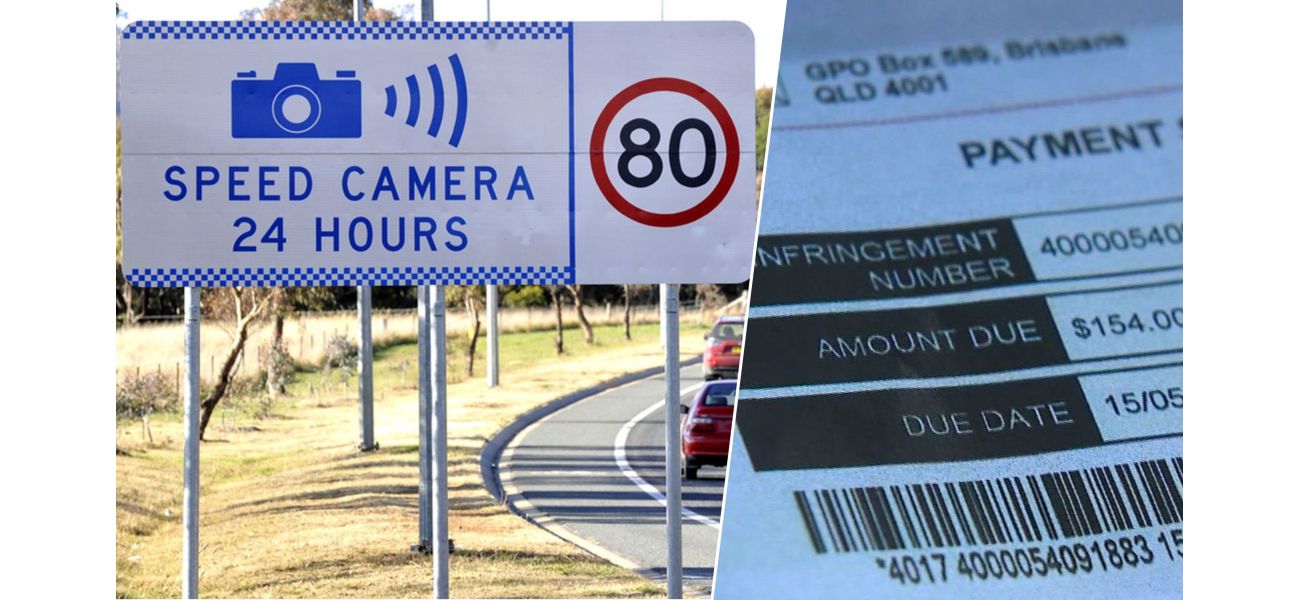New demands that income should determine speeding penalties.
Report says fixed speeding fines are unjust and regressive, especially during high living expenses, per The Australia Institute.
October 13th 2024.

There has been a recent push for Australia to consider a system similar to Finland's, where speeding fines are determined based on the individual's income. According to a study conducted by think tank The Australia Institute, flat-rate traffic penalties for speeding are deemed unfair and "regressive," especially given the current financial struggles many are facing.
The research showed that implementing a proportional fine system, like the one in Finland, would be a more equitable approach to handling traffic violations in Australia. In Finland, fines are calculated based on a person's monthly income and whether they have dependents to support. This was demonstrated when a wealthy Finnish driver was charged nearly $200,000 in 2023 for driving 32km over the speed limit. On the other hand, a low-income individual caught driving less than 10km/h above the limit would only have to pay around $33, while a higher earner would be charged approximately $295.
In comparison, all Australian states have a flat-rate fine system based on the severity of the offense. The Australia Institute pointed out that this practice could potentially have devastating consequences for those with low incomes, while high-earners may view it as a mere inconvenience. "For a person living on a low income, a speeding fine can be financially crippling," said Alice Grundy, one of the researchers involved in the report.
The report also highlighted a tragic case in which a First Nations woman died in Western Australia while in custody, unable to pay a $1000 fine. This highlights the cycle of poverty that can be triggered by unpaid fines, leading to a criminal record or other enforcement measures that can hinder an individual's ability to work and pay off the debt.
Zyl Hovenga-Wauchope, executive officer at Financial Counseling Victoria, expressed that the current flat-rate system goes against Australia's values of a "fair go." He believes that implementing a proportional model based on income and livelihood would be a significant step towards achieving equity among Australians. "In a country that prides itself on the fair go, it is unjust that speeding fines are charged at a flat rate," Hovenga-Wauchope stated. "While it may be a minor annoyance for the wealthy, it can be life-altering for those living in poverty."
The report also acknowledged potential concerns about an income-based fine system being seen as a means of revenue generation. To address this, they suggested that the money collected from fines could be redirected towards road safety projects.
In conclusion, the Australia Institute's report sheds light on the inequities within the current speeding fine system in Australia and proposes a more just and proportional approach. By taking into account an individual's income and financial circumstances, this model aims to alleviate the burden placed on those with lower incomes and promote a fairer system for all Australians.
The research showed that implementing a proportional fine system, like the one in Finland, would be a more equitable approach to handling traffic violations in Australia. In Finland, fines are calculated based on a person's monthly income and whether they have dependents to support. This was demonstrated when a wealthy Finnish driver was charged nearly $200,000 in 2023 for driving 32km over the speed limit. On the other hand, a low-income individual caught driving less than 10km/h above the limit would only have to pay around $33, while a higher earner would be charged approximately $295.
In comparison, all Australian states have a flat-rate fine system based on the severity of the offense. The Australia Institute pointed out that this practice could potentially have devastating consequences for those with low incomes, while high-earners may view it as a mere inconvenience. "For a person living on a low income, a speeding fine can be financially crippling," said Alice Grundy, one of the researchers involved in the report.
The report also highlighted a tragic case in which a First Nations woman died in Western Australia while in custody, unable to pay a $1000 fine. This highlights the cycle of poverty that can be triggered by unpaid fines, leading to a criminal record or other enforcement measures that can hinder an individual's ability to work and pay off the debt.
Zyl Hovenga-Wauchope, executive officer at Financial Counseling Victoria, expressed that the current flat-rate system goes against Australia's values of a "fair go." He believes that implementing a proportional model based on income and livelihood would be a significant step towards achieving equity among Australians. "In a country that prides itself on the fair go, it is unjust that speeding fines are charged at a flat rate," Hovenga-Wauchope stated. "While it may be a minor annoyance for the wealthy, it can be life-altering for those living in poverty."
The report also acknowledged potential concerns about an income-based fine system being seen as a means of revenue generation. To address this, they suggested that the money collected from fines could be redirected towards road safety projects.
In conclusion, the Australia Institute's report sheds light on the inequities within the current speeding fine system in Australia and proposes a more just and proportional approach. By taking into account an individual's income and financial circumstances, this model aims to alleviate the burden placed on those with lower incomes and promote a fairer system for all Australians.
[This article has been trending online recently and has been generated with AI. Your feed is customized.]
[Generative AI is experimental.]
0
0
Submit Comment





